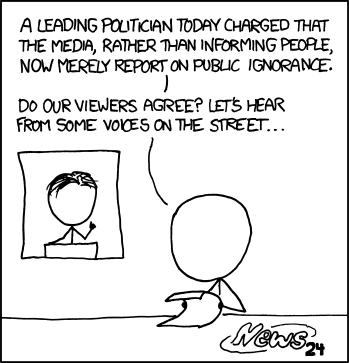
If the main objective of newscasts is really to give the public the best brand of journalism to offer, then the issue on sensationalism could have dissolved long time ago.
Obviously, traces of sensationalized reporting remain, if not have evolved into new forms -- but these are still the very same journalistic quandary that journalism has been experiencing for a seemingly protracted era.
In subscription to the highest standards of journalism, a reporter aims at achieving an informative and comprehensive story grounded on “real” facts and untwisted statements from reliable sources.
UP Journalism Professor Danilo Arao describes the plight of today’s news reporting, “It’s not the audiences who requested that TV news reports be limited to about 1.5 to 2.0 minutes. The limited time is obviously imposed by the ‘gatekeepers’ of the broadcast media so that they could squeeze in as much news as possible even if the context is wanting.” (The Lobbyist, December 28, 2010; accessed January 2011)
He further explains that putting premium on quantity instead of quality gives a sort of illusion that audience’s time is not wasted. Additional time for “hard news” is indeed a necessity in order to properly contextualize issues and concerns.
News organizations through time have mastered the discipline of filtering the news. By this, we mean the act of differentiating legitimate news from unreasonable ones. Legitimate news pieces serve as building blocks of headlines. This is where news anchors begin highlighting top stories of the day.
While reasonable news must be followed up, say a developing story on Baron Geisler’s alleged malicious acts against some female celebrities, it does not have to be carried out in a way a primetime teleserye packages its story narration.
Even critics of the Western media have the same sentiment, “I don't know about you, but I'm sick of sensationalism in the media. So many stories involve violence, celebrities, sex, or ‘shocking surprises.’ It's not bad enough that they emphasize these stories, but they often mislead us as well,” writes CBS contributor Lloyd Garver. (No More Sensationalism!, published August 2003, accessed January 2011).
The power of the pen is so powerful that it can influence public awareness. Journalists shall aim at unearthing the reason and not sensation created by their pens. While we recognize "human sentiment," we should be looking at objective reality, not at emotions alone.
Image courtesy of xkcd, accessed February 2011: http://xkcd.com/756/
No comments:
Post a Comment